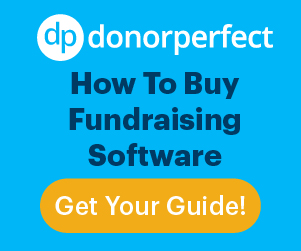This post was originally published here (Center on Nonprofits and Philanthropy)
In the era of big data, private companies are accumulating information at an ever-increasing rate and are using the power of these data to derive greater and more detailed insights about all types of activity. Some companies are leveraging their data assets to improve public services and decision-making through the emerging field of data philanthropy. These companies responsibly share their data with researchers, nonprofit organizations, government agencies, and the public to fill knowledge gaps and turn data into insights across a broad range of pressing and timely issues.
Data philanthropy can solve social issues
Data philanthropy offers significant benefits to private companies that hold valuable data assets. A company can use data philanthropy to demonstrate good citizenship and to help solve social issues that require multisector solutions. For the public, data philanthropy can spark innovation, open new lines of research, and help solve problems that cannot be addressed by existing data sources.
The boundaries of data philanthropy have not been fully established, and private companies that provide data often define the practice differently than researchers or beneficiaries. There are, however, three common themes that cut across most definitions:
Private data are generated or collected by a private, for-profit entity, which we refer to as the “data provider.”
This data provider shares data (subject to privacy and data protection safeguards including anonymization and aggregation), or insights generated from its data, with the public or a public-serving analyst, such as a research university or nonprofit research institution.
The data, or results of analysis performed on the data, are used to yield new insights; improve public policies, programs, and services; or otherwise serve the public good.
By synthesizing these three elements, we define data philanthropy as the act of sharing private data assets to serve the public good.
How to maximize data philanthropy’s benefits
Data providers interested in data philanthropy can choose from various “pathways” along a continuum of data access, from tight control to full public access. We describe this continuum and provide examples of these pathways. We also help data providers assess the best pathway for their organization and identify key factors to consider.
Data philanthropy is a new and evolving field that has seen significant growth. As new data providers enter the field and new models are tested, we hope data philanthropists will see these pathways and questions as starting points for future innovation and that the concepts and examples provided here support the growth of the field.
Data philanthropy in action
To illustrate private data’s potential as a source of important information for policymakers, practitioners, and researchers, this report showcases one example of data philanthropy in action: the partnership between the Urban Institute and the Mastercard Center for Inclusive Growth.
Through this partnership, Urban explored how Mastercard’s insights could be used to understand several key policy issues related to charitable giving and equitable development in US cities. To shed light on these important matters, the Center provided Urban access to a set of Mastercard’s transaction data narrowly limited in both time and geography, which was both aggregated and anonymized, as well as subject to numerous additional privacy and data protection safeguards. We present the findings from these explorations in two “use cases.” Although the results are preliminary, these use cases highlight how data philanthropy can inform important policy questions by filling knowledge gaps and illustrate some of the considerations raised in the report.









